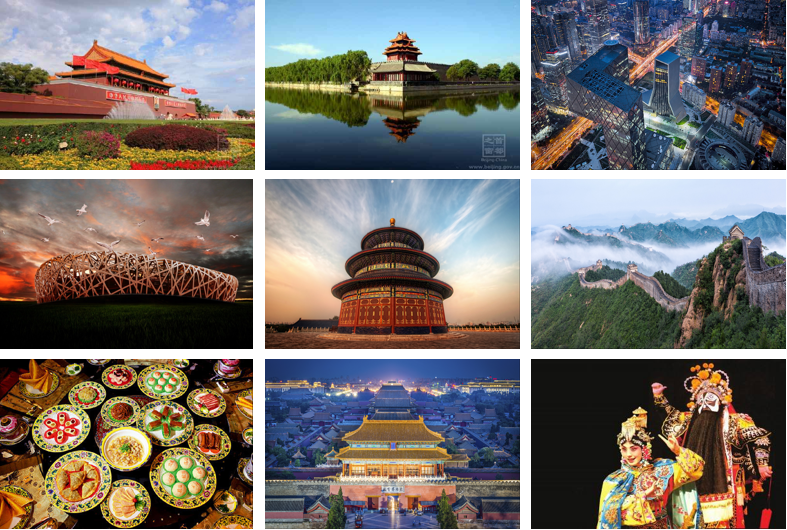
Beijing is the capital of the People's Republic of China, the world's third most populous city proper, and most populous capital city. The city, located in northern China, is governed as a direct-controlled municipality under the national government with 16 urban, suburban, and rural districts. Beijing Municipality is surrounded by Hebei Province with the exception of neighboring Tianjin Municipality to the southeast; together the three divisions form the Jingjinji metropolitan region and the national capital region of China. Combining both modern and traditional architecture, Beijing is one of the oldest cities in the world, rich in history.
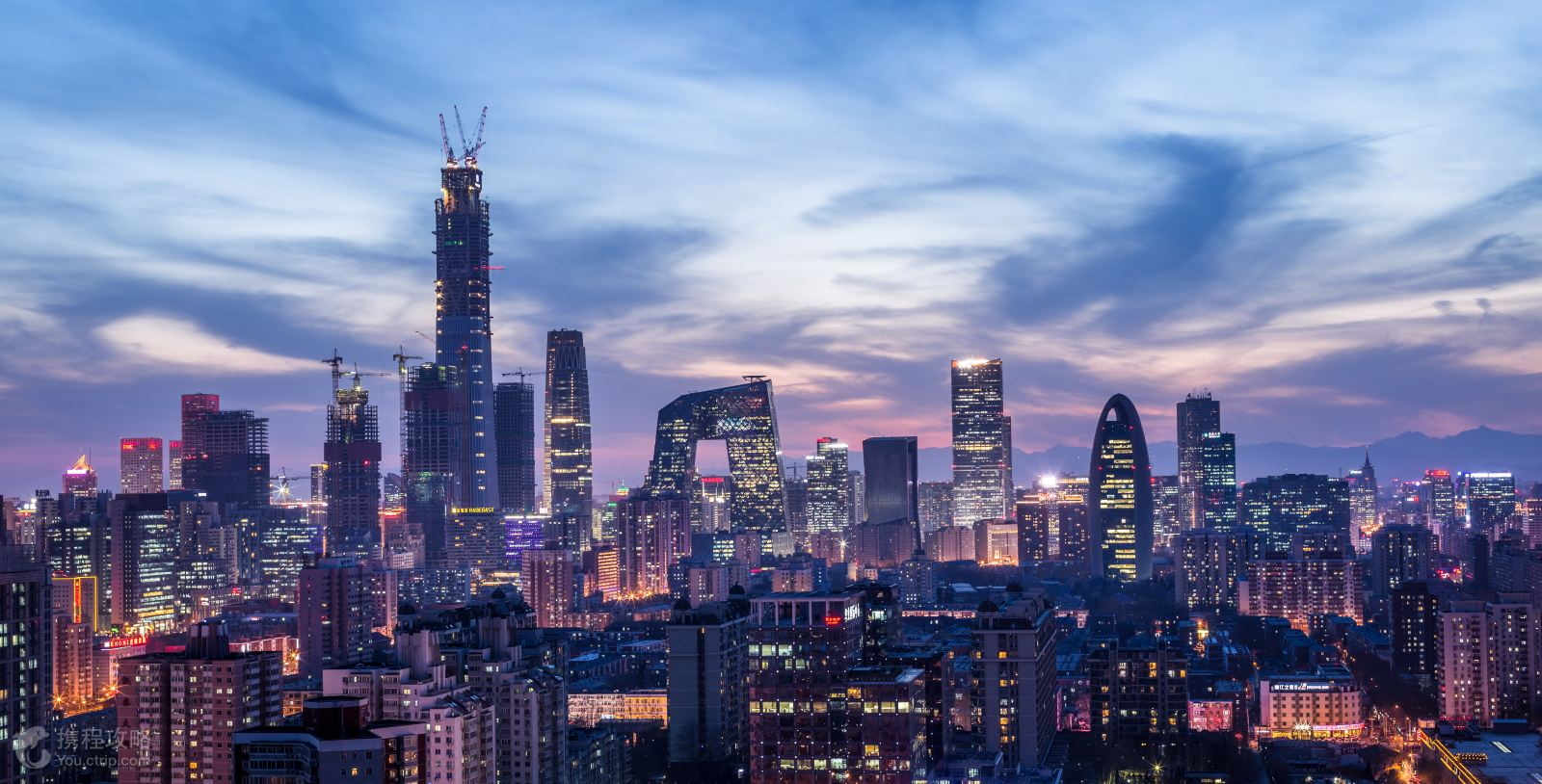
No trip to Beijing is complete without a journey into the Forbidden City. Experience one of China's national treasures when you step inside this expansive palace complex. Home to two dynasties of imperial rule, this was the center of administration until the overthrow of the Qing Dynasty in 1911. Now a UNESCO World Heritage site, the Forbidden City is one of the world’s best-preserved ancient palaces.While mere mortals would have faced severe punishment for stepping inside the palace gates during dynastic rule, the palace now welcomes more than 15 million visitors per year. Step inside to explore over 700 years of history and uncover a sprawling, intricate maze of pathways, courtyards and buildings. With almost 9,000 rooms, its sheer size is simply incredible.
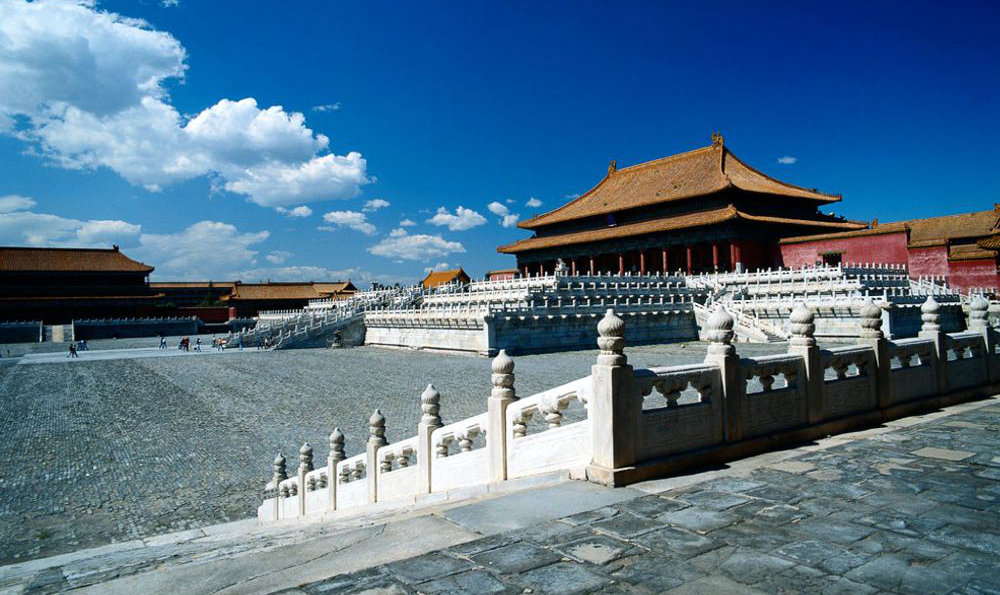
Explore the grounds and see the luxurious life led by the imperial families of the Ming and Qing Dynasties. The palace is composed of the inner court, where the families handled daily affairs and kept their living quarters; and the outer court, where the emperors held banquets, important events, and imperial examinations. Aside from the courts, you’ll stumble upon elegant and ornate gardens where family members would have strolled to pass the time.
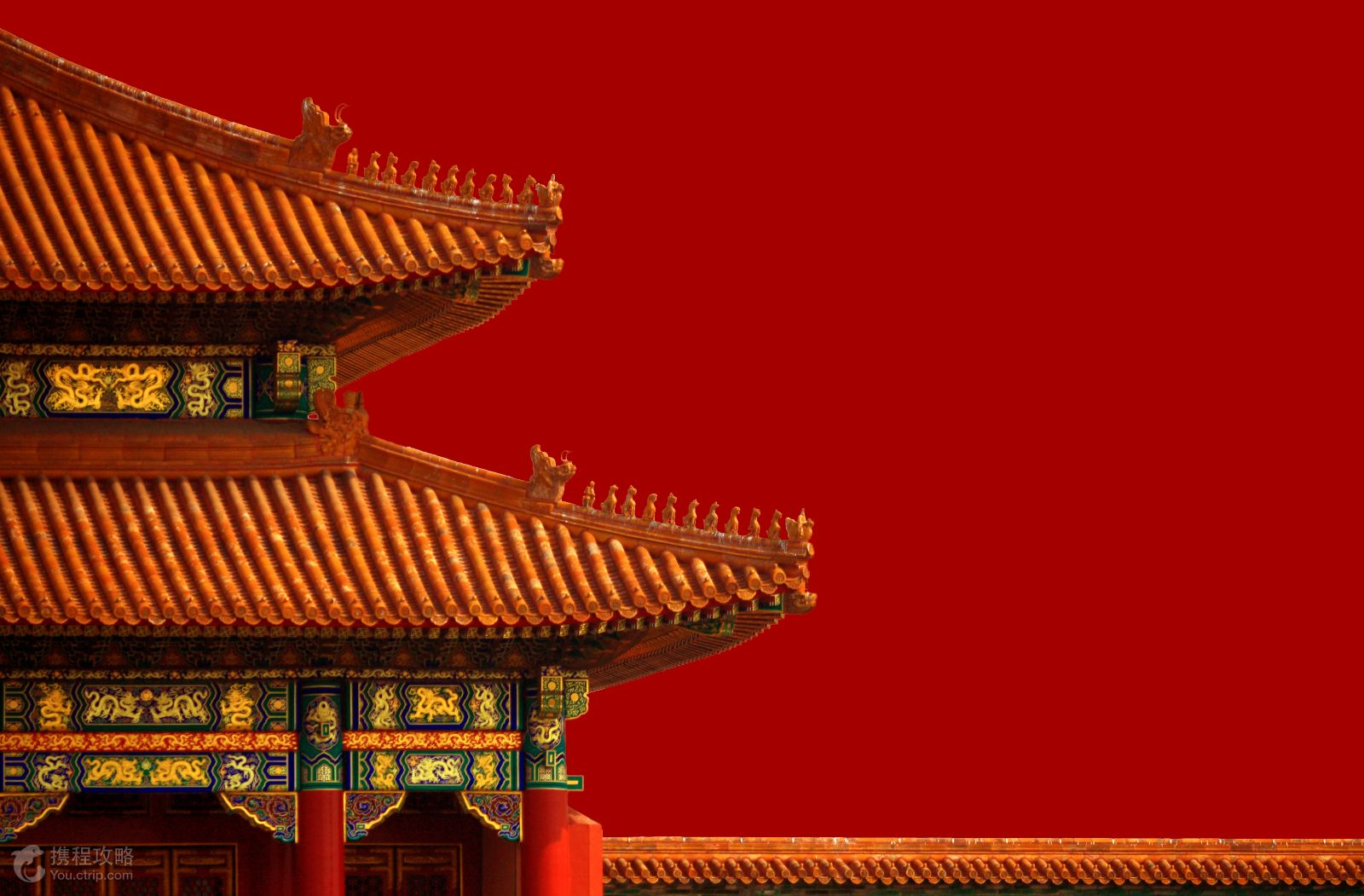
Get an in-depth understanding of the history behind the Forbidden City at the permanent exhibitions, including "Chongqing Empress Dowager Special Exhibition" and "Forbidden City Architectural Art Exhibition".Since the palace grounds are situated next to several of Beijing’s famous cultural attractions, it’s easy to spend the whole day immersed in the magic of ancient China. Tiananmen Square, the National Museum of China, and Mao’s Mausoleum are all a short walk from the Forbidden City, so get ready for an unforgettable day of discovery that’s essential to any China trip.
As the Chinese proverb reads, 'He who fails to reach the Great Wall is not a great man'. Accomplish the journey at Mutianyu, one of the most magnificent sections of the Great Wall. Situated around 80km from inner-city Beijing, its secluded location and peaceful vibe will enchant and amaze. Less crowded than other sections of the wall like Badaling, you'll find much more room for a perfect photo.
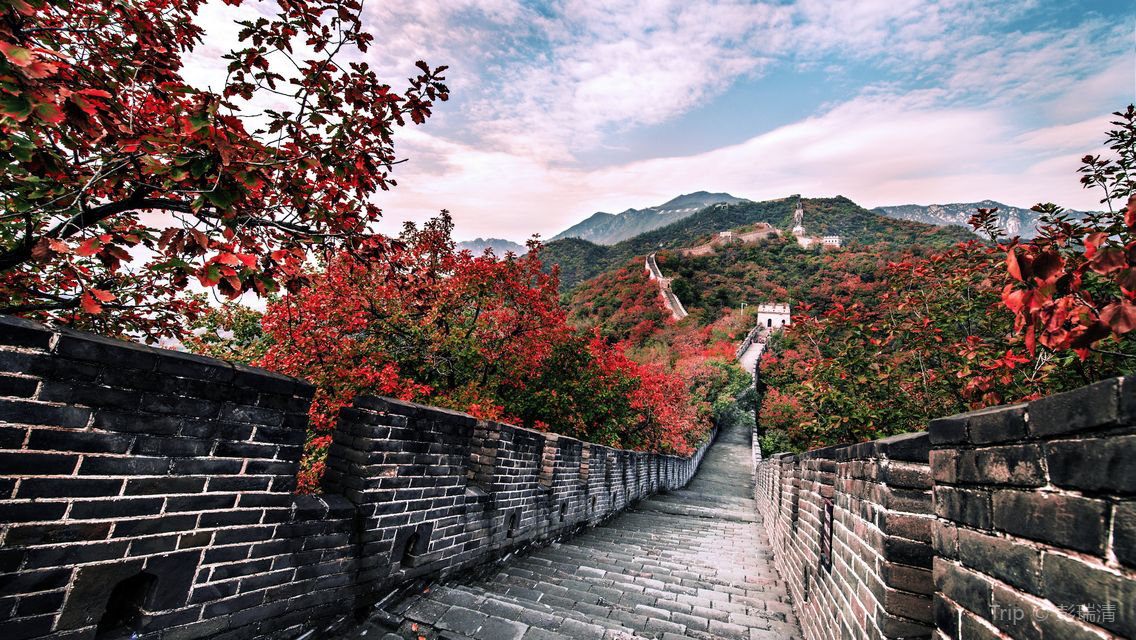
The Great Wall's most picturesque section, Mutianyu is surrounded by lush forests and blue sky. Capture the grandeur of the wall with the beauty of nature no matter what time you choose to visit. Dusted with snow in winter, blossoming flowers in spring, or amber leaves in fall, it is a sight to behold all year round.
Mutianyu is built in a unique architectural style, combining pathways with watchtowers and fortresses. Feel the history of the wall come to life as you explore the fascinating wall features, including the iron cannon preserved since the Ming Dynasty and the parapets that allowed soldiers to fire arrows at the enemy.
Save your energy for the day’s trek and ascend to the starting point by cable car. Soar over the wall and its beautiful forest and take in the incredible scale of this piece of history. At 22 kilometers long, Mutianyu is the longest section of the Great Wall. It's the perfect way to begin and end your adventure.
Your admission ticket gives you the freedom to explore at your own pace without the annoyance of a tour group. Make the journey even smoother with the shuttle bus service inside the scenic area, so you can save energy and keep exploring.
Get picked up from your hotel between 07:00-07:30 and head to the Tian’anmen Square, located at the center of Beijing City. On the Tian'anmen (Gate of Heavenly Peace) Rostrum, Chairman Mao announced the establishment of the People's Republic of China. In front of the Gate stands a pair of marble columns called Huabiao, elaborately cut in bas-relief following the pattern of a legendary dragon, two stone lions served as sentries, one on each side gazing toward the middle axis and guarding the emperor’s walkway, as well as seven arched stone bridges known as the Outer Golden Water River Bridges.
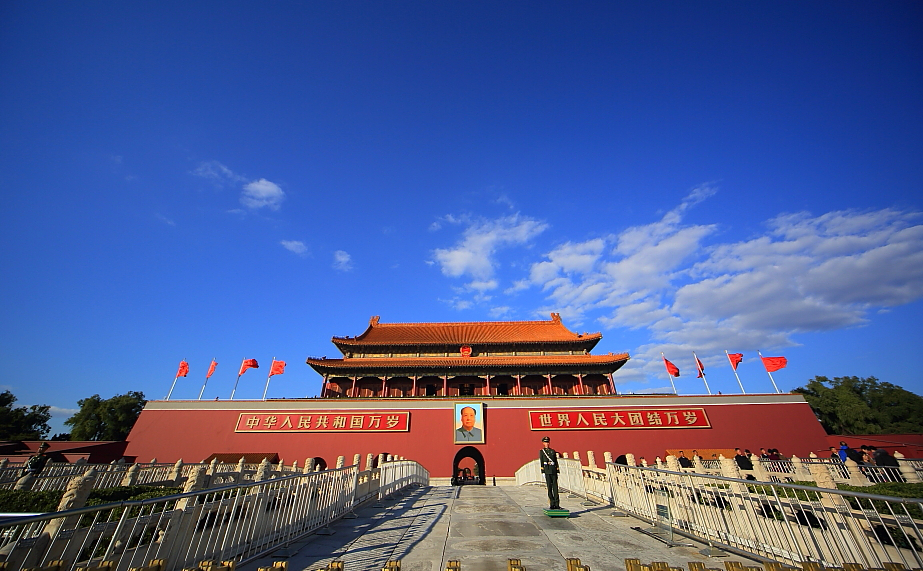
Tian’anmen Square is also an ideal place to enjoy other magnificent constructions from a distance, such as Monument to the People's Heroes, Great Hall of the People, Mao Zedong Memorial Hall and the National Museum of China.
Temple of Heaven
The Temple of Heaven, literally the Altar of Heaven, is the largest ancient imperial worship architecture group in the world where the ancient Emperors prayed for peace and good harvests. Amazed by its grand architectural style and profound cultural connotation, you will linger on with on thought of leaving.
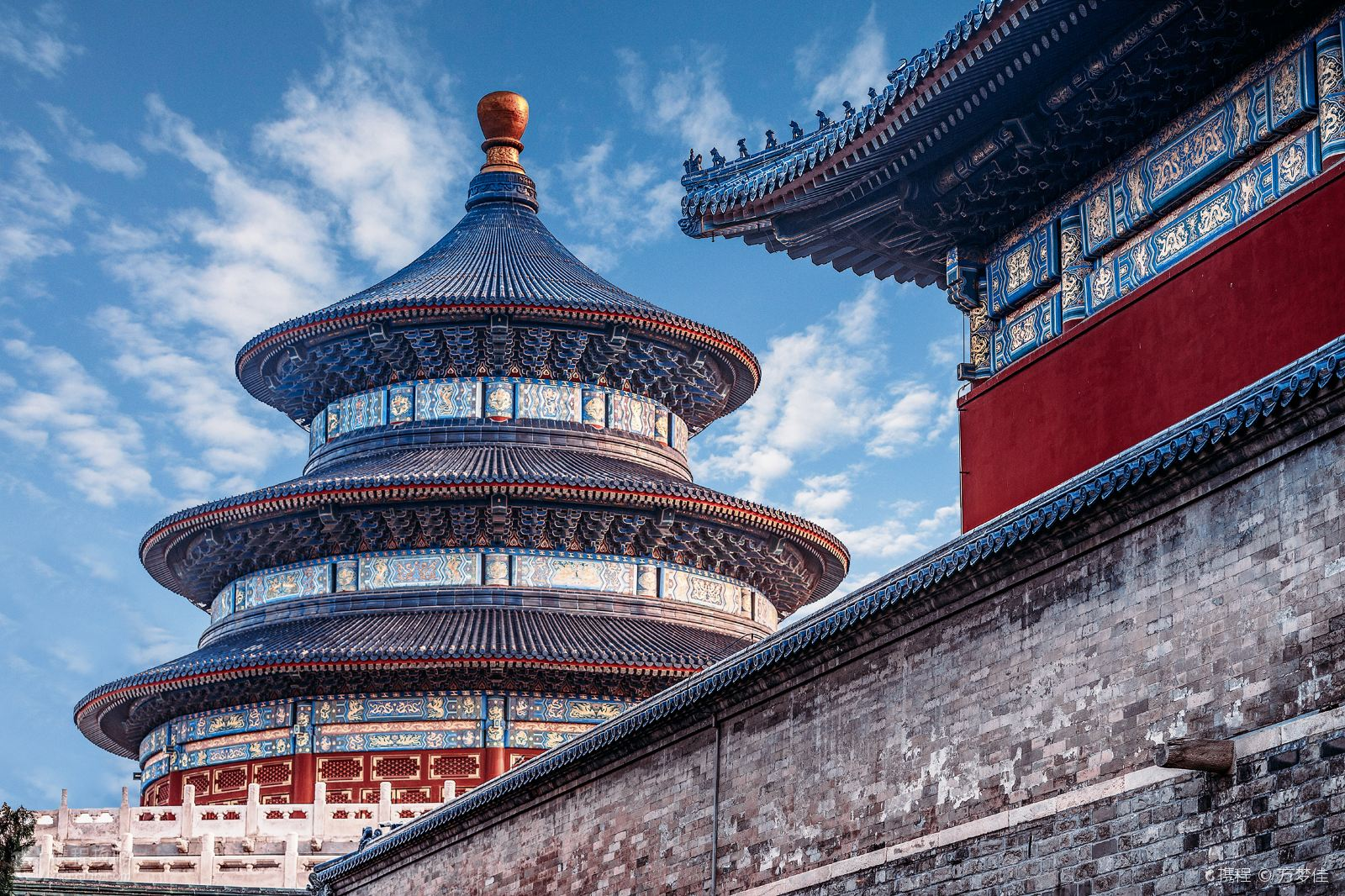
Summer Palace
Being the largest and most well-preserved royal park in China and recognized as ‘The Museum of Royal Gardens’, Summer Palace exhibits great influence on Chinese horticulture and landscape with its famous natural views, composed mainly of Longevity Hill and Kunming Lake, and cultural interests.
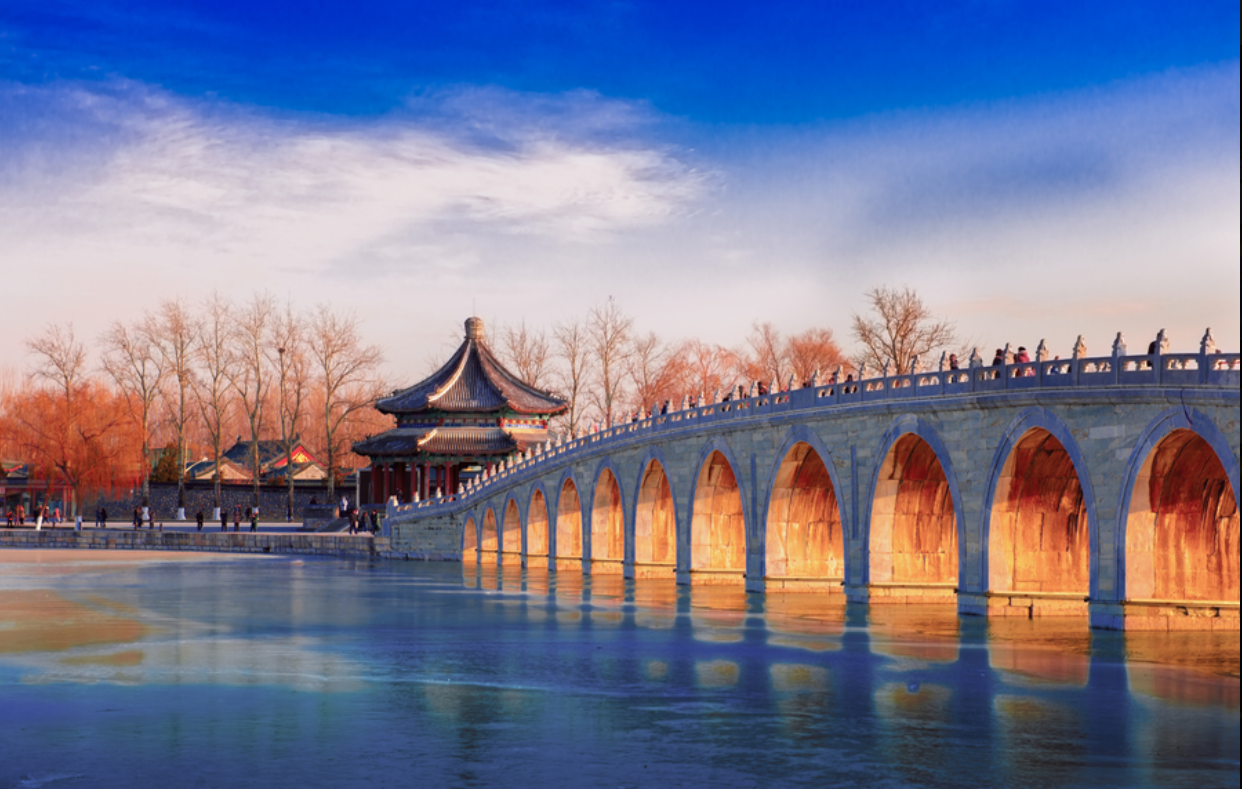
Peking Opera at Liyuan Theater
Originating in the 18th century, Peking Opera encompasses stunning costumes, song, dance, mime and music that are incomparable to western opera. It is the most celebrated of China's many opera styles and a visual and aural delight for visitors to the Liyuan Theater in Beijing's Qianmen Hotel. A legend of opera since 1990, the theater has become famous for its shows and has been visited by foreign dignitaries on trips to China.
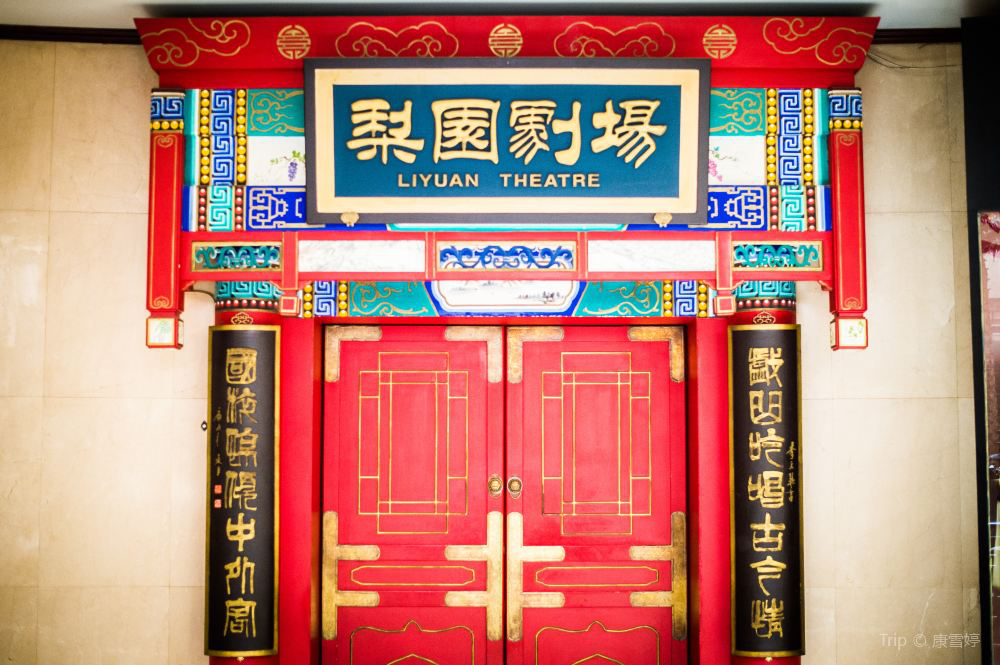
The best thing about the Liyuan Theater is that there is no need to worry about the language barrier, as there are lateral screens of English subtitles so you can follow the story and maximize your enjoyment. Arrive early and you'll get a sneak peek into the performers' dressing room to see them get ready for the show. Don't miss out on this cultural gem on a trip to Beijing.
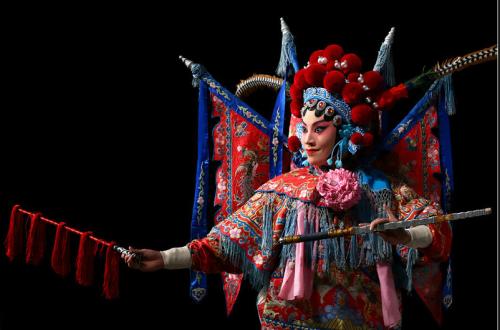
Beijing Duck
Beijing Roast duck is thought to be one of the most delicious dishes all over the world; most visitors coming to Beijing will never forget to have a try. Eating Peking duck is seen to be one of the two things you are absolutely supposed to do while in Beijing.The history of the roast duck can be traced back to as early as the Yuan Dynasty (1206-1368) when it was listed among the imperial dishes in the Complete Recipes for Dishes and Beverages, written in 1330 by Hu Sihui, an inspector of the imperial kitchen.
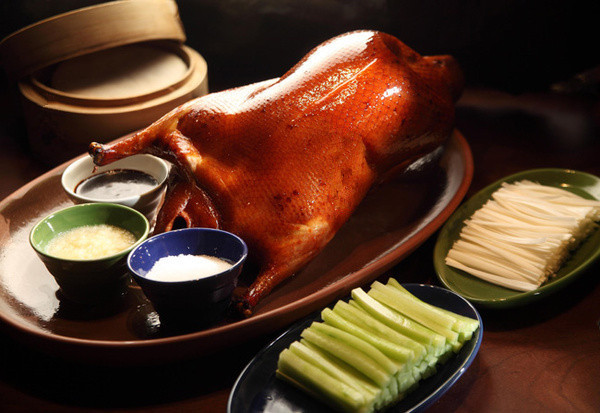
The history of the roast duck can be traced back to as early as the Yuan Dynasty (1206-1368) when it was listed among the imperial dishes in the Complete Recipes for Dishes and Beverages, written in 1330 by Hu Sihui, an inspector of the imperial kitchen.
Hotpot
Shuan yang rou, or Mongolian hot pot as it is often known in the West, is a very popular Chinese dish, especially in Beijing, and is primarily eaten in winter, when cold winds blow down from Mongolia. It particularly popular for Chinese New Year. Yang rou is Mandarin for lamb, the favored meat for this dish. Shuan can be roughly translated as "to swish."The Chinese hot pot boasts a history of more than 1000 years.
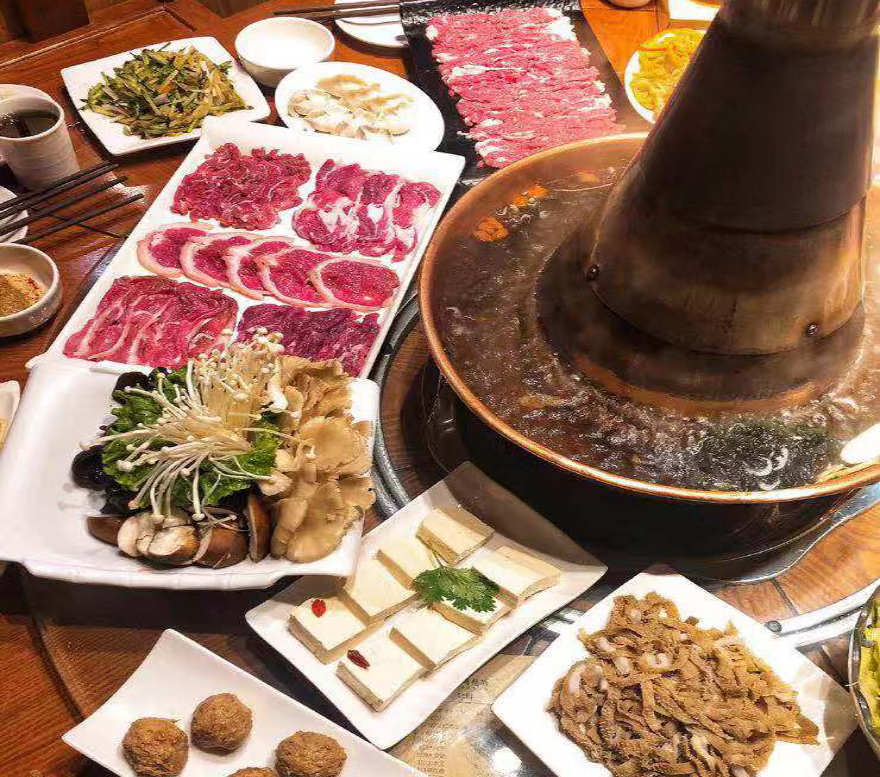
While the hot pot is kept simmering, ingredients are placed into the pot and are cooked at the table. Typical hot pot dishes include thinly sliced meat, leafy vegetables, mushrooms, wontons, egg dumplings, and seafood. The cooked food is usually eaten with a dipping sauce. In many areas, hot pot meals are often eaten in the winter.
